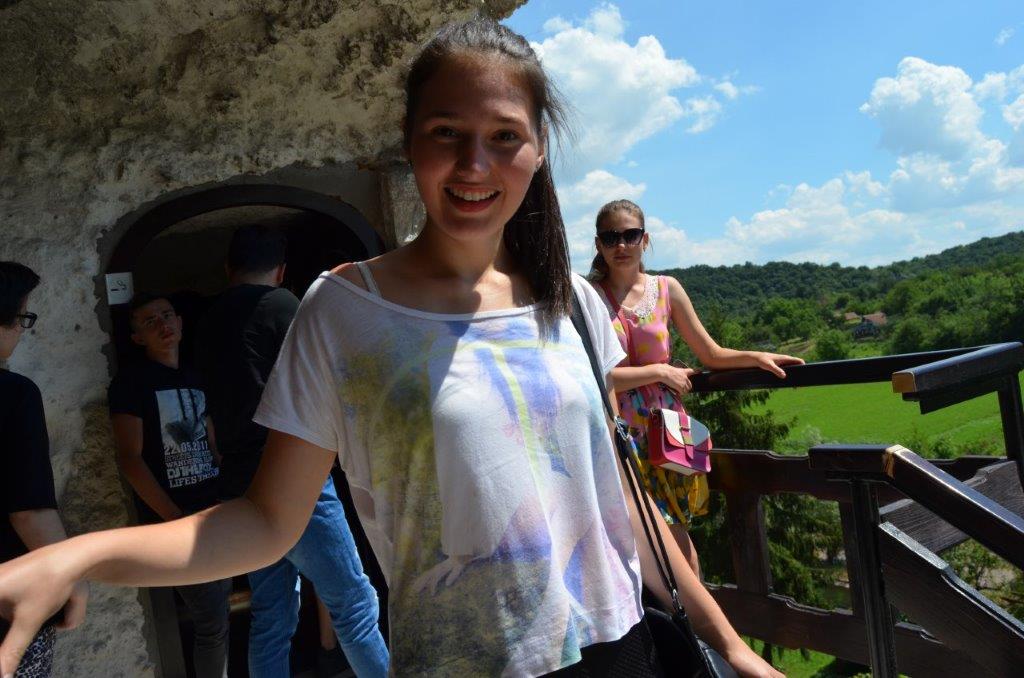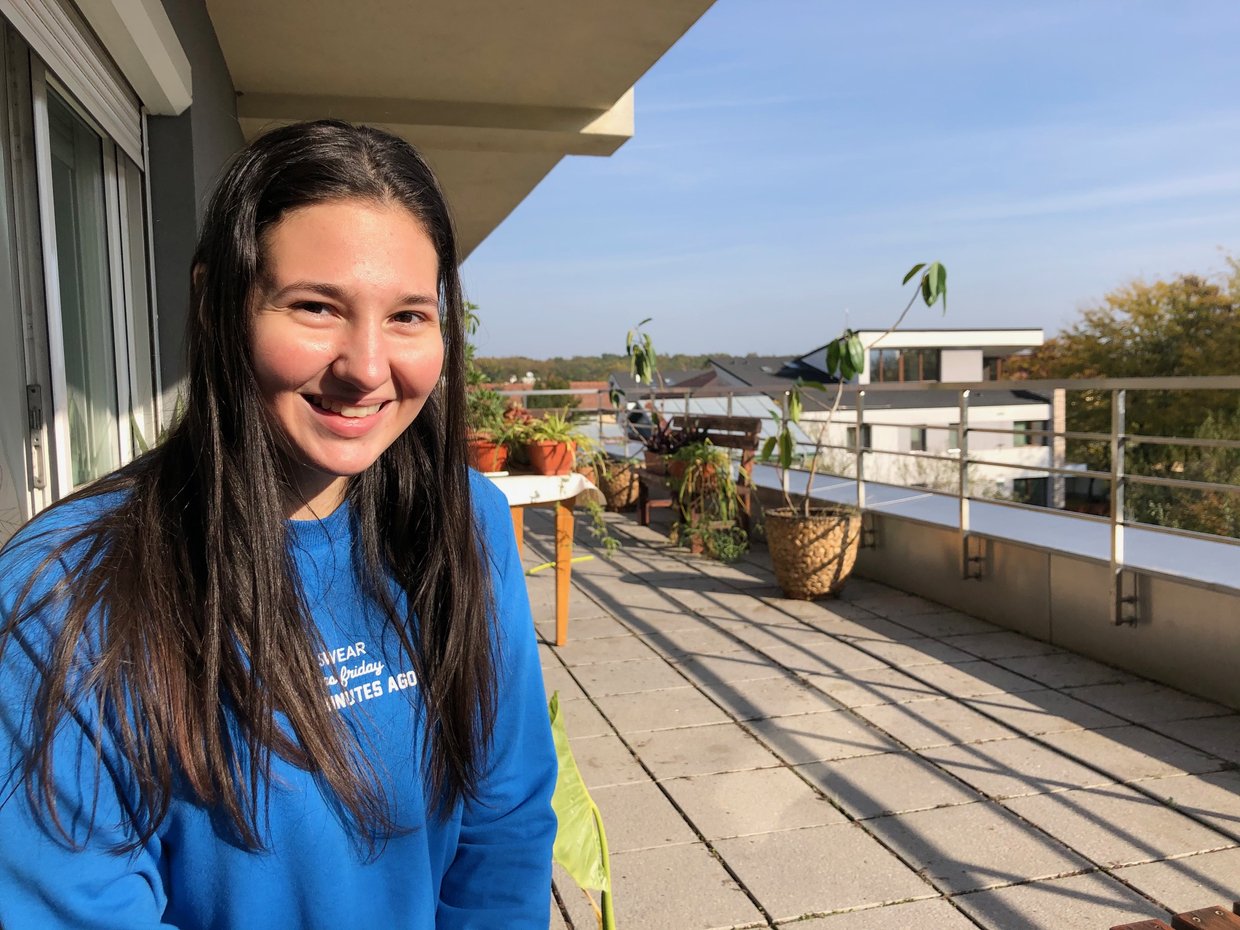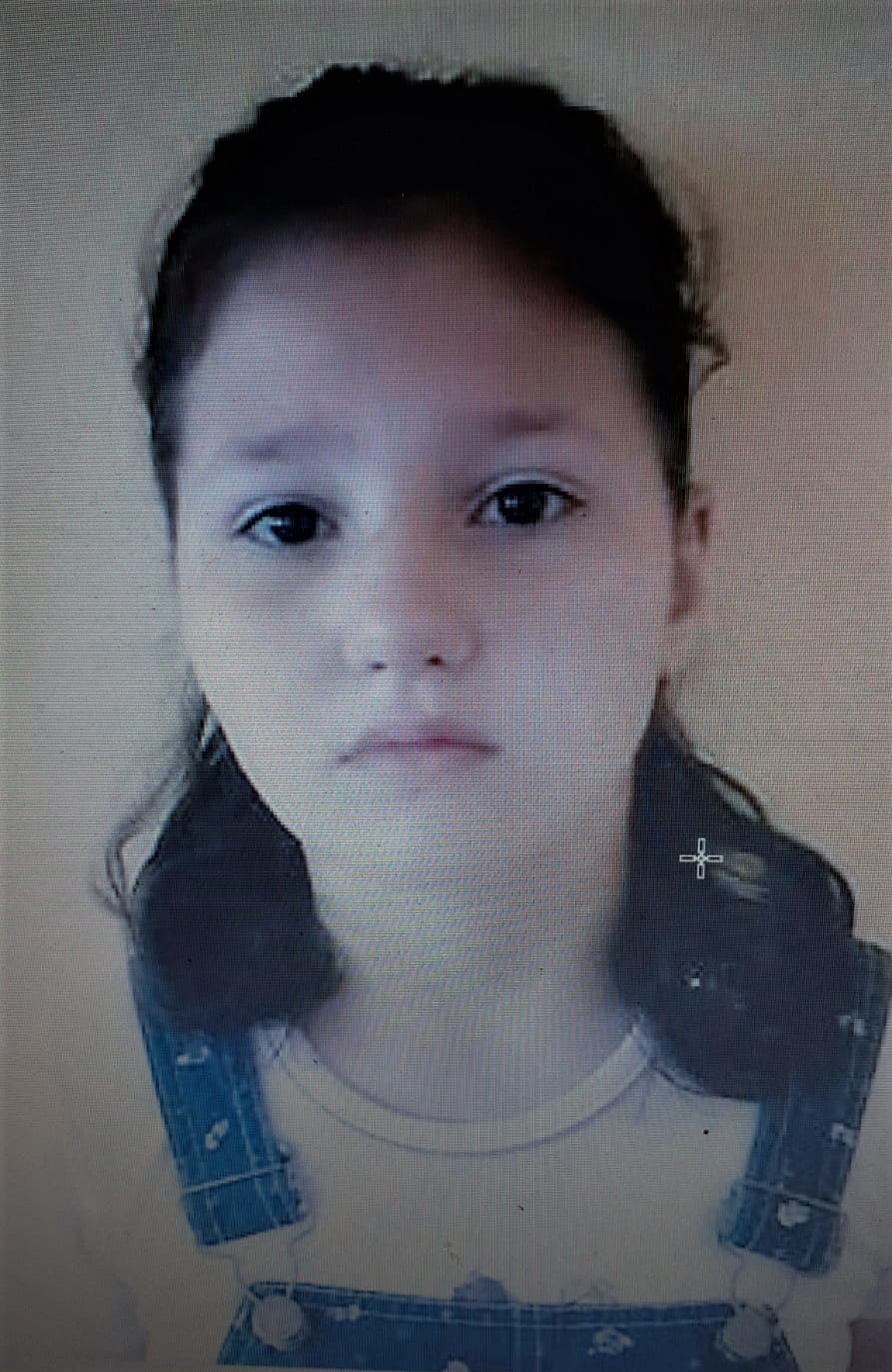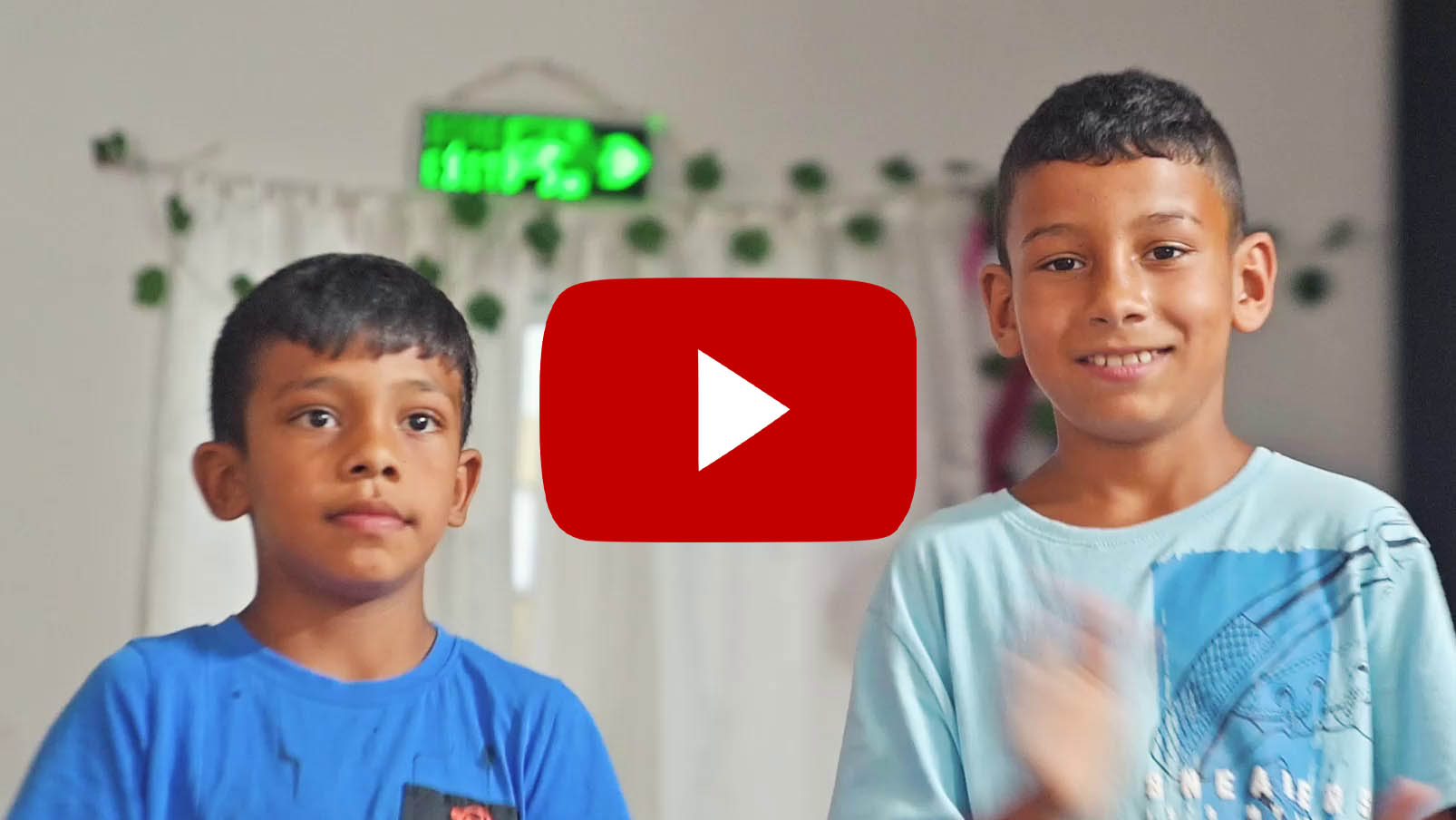The Story of Ema
When Ema was 7 years old, she woke up one day noticing her mother is missing home for days.
By the age of 23, Ema lived a life full of tests, fears, changes and questions, many questions she had been asking herself since she was little and wandering the streets alone. Not at all common for a 5 year old child to walk alone, to be by herself in the park surrounded by strangers, when all kids are together with their parents or grandparents.
"Why doesn't my mother love me? Why is she never with me?”
This loneliness was part of Ema’s first years of life, until she reached 7 years old and she was brought to St. Paul Center by a priest who found her alone on the streets. Ema is one of the children raised by CONCORDIA, for the past 14 years she has been living in few centers of the organization. Today she is a student at the Social Assistance Faculty from Bucharest, preparing to become a social worker because she wants to help other children abandoned by their parents.

She is a grown up woman now, beautiful, smiley and confident in the future, but she knows her life would not be the same, if she hasn’t come that day to St. Paul. Ema’s life story started with a sad childhood, in one of Bucharest’s poor areas from Ferentari, where she lived in a place that she would call home, but was actually an improvised construction with no water, heat or entrance doors. She lived there together with her older brother, a boy with mental disability and hepatitis (after some years, the brother died, but she doesn’t remember clearly when), her old grandmother and her mother who was most of the times gone. She barely remembers moments with her mother as a small child. Ema’s father died when she was a baby, because of a heart condition. She has other 2 older brothers, born by her mother when she was very young. When she was little she knew they lived in foster care families in Bucharest and did not want to meet her or to stay in touch with their mother. Ema remembers she used to watch cartoons to a small TV all day long, she had only one toy pistol she would play with. Sometimes she went to the park alone to play and she had made a habit of eating a lot of bread, sugar and apples back in their poor family home. She would not play with other kids in the neighborhood, she was very secluded and closed within herself, shy and scared to interact with other persons.Things have gotten even worse, because her mother was struggling to support her, the ill brother and her grandma, but the woman could hardly find a decent work to provide food for all 4 of them.
When Ema was 7 years old, she woke up one day noticing her mother is missing home for days.
It was her grandma who told her mother left the country trying to escape some men gypsies from whom she had taken money with usury and could not return back. She was forced to do that because she could not cover all their life expenses. When all those men broke into their house asking for her mother, Ema was playing with the toy pistol. She pointed the gun towards them imagining she would save her grandmother and herself from their threats. But nothing happened. Days would get harder and harder with her mother gone, the ill brother and the grandmother too old to support all 3 of them.
One night, Ema ran away from home.
Walking through the streets of Bucharest, she got tired in the evening and found a bench in a bus station to rest. It was there she was found by a priest who asked her if she was alone and she needed a place to sleep. He took her to St. Paul Center in Bucharest. Her first day in St. Paul is still vivid in her memory. She would be welcomed with kindness by all the educators in a warm and cozy place, she would go to the park and eat sandwiches together with the other kids. Even if she knows that was not her family, she felt like she was in the middle of a family.
She lived one month in St. Paul Center, before her grandmother found her and took her back to their poor home where she would constantly be sad missing her mother and live from one day to another. When the old grandmother decided it was practically impossible to feed and take care of them both, she decided to take Ema to a state center for children from Bucharest.
A new and hard chapter of little Ema’s life started.
And a life full of bad days, because she was abused by older institutionalized children and by the social workers, most of the time without a reason. Just because they could. She felt like in a prison there and she became more secluded and closed within herself, she would not respond to the tasks she was given, punished and so on. As in an absurd circle. All that brought her educators conclude she would belong in a special school, because they thought she was not able to follow the rules. On top of everything else, Ema could not have access to a normal educational level, though her intellectual abilities were great. She spent her first four school classes in a special school where she would practically learn nothing. Very unfortunate for a child’s educational start. Ema lived in that state’s institution from Bucharest for almost 2 years, because one day, as she could no longer bear the atmosphere and the treatment there, jumped over the fence and ran away as fast as she could. Not looking back, not thinking where she would live. Good thing she had this courageous idea on a summer day. This time, police found 9 years old Ema on the streets and took her home to her grandmother. Back there, in the poor house, where she perfectly understood she could not live anymore, she begged her grandmother: “Please, if you have to take me to live in a center, take me back to St. Paul from CONCORDIA, I like to live there, people treat me good”.
Ema came back to CONCORDIA and lived in St. Paul for 5 years.
Her childhood at the St. Paul Center was very beautiful, she found all the attention and good words that she lacked all these years. She was still shy and a cold fish girl, but she started playing with her peers, saying openly what she likes and what she doesn’t. She felt she was listen to. She didn't feel captive, she had that feeling like she was in a family. From that point on, she went to the special school 2 more years, but she had already started learning things by herself because she noticed that no one was helping her. Her luck was about to shine again, her destiny was about to change in 2 years. It was Christmas time in St. Paul, that time of the year when people used to bring gifts to the children living in the center. Ema remembers she was one of the 2-3 children who would not go home for Holidays, the others used to spend Christmas with the families. Not her, she did not have the parents in her life, her older brothers living in Bucharest none would not want her in their houses.
One day, a lady called Loredana visited the center and meet Ema.
She brought her presents and they talked, Ema told her a poem. Loredana liked her so much that she asked to take Ema to her home to spend Christmas with her family. Those days became weekends and other holidays that the little girl would spend in a real family, Loredana’s. The more she got to know Ema, the more confident Loredana was that Ema's place was not in a special school, therefore she initiated the process of re-evaluating the girl in order to be moved to a normal school. When St. Paul Center was closed, Ema was moved to the Children’s Farm in Aricesti, one of the largest institutionalized children's centers of Condordia, a place with homes for children arranged in the quiet landscape of a village in Ploiesti.
If she should make a top of places where she lived the freest in the last 14 years, Ema would say that Children’s Farm in Concordia Aricesti was the best one. She remembers those years that she played a lot outside, she swung, she watched TV. Some evenings, she would climb on a slide and talked to a girl, Alina, for hours, about God, about school, about life.
During high school, Ema spent her life as a teenager in a family-like home in Ploiesti.
She was a very conscientious student and was among the best in her class. In her last year of high school, Ema decided to take the admission exam for studying at the Social Assistance Faculty from Bucharest University. 2019-2020 was her first academic year and the year she moved to CONCORDIA Iuda House from Bucharest, where she continues to be assisted by the organization with monthly expenses cover, food and a place to live . She haven’t seen her mother since she was little and she still doesn’t have any relation with her older brothers.Ema continues to move forward, with ambition and confidence, she hopes good years will come next in her life. She planes to get a job this year and to start raising money so she could deposit the advance for a house by mortgage, where she could live without fear that someone will kick her out. After she will finish her University studies, she dreams of being the best and most empathetic social worker she could be. For all the vulnerable children who could need her expertise, support and maybe a bit of confidence that they can change their destiny with some guidance, determination and sustained work.
In her soul, Ema made peace with her mother abandoning her.
She understood that her mother had to run to another country in order to escape the people she took money from and could not pay back. She still imagines the moment her mother could look for her. What would she do? How would she react? If her mother came to her for help, would she lay a hand?Ema is one of the children who changed their lives with CONCORDIA’s support. There are many cases inside the organization like this one. Ema went to all the stages of institutionalization inside our organization and she succeeded to make the most of all the educational and financial support, the vocational classes and the psychological therapy.




